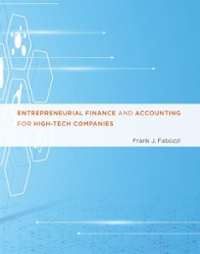John Smith was a star football player on X University's football team. He was a four-year starter and, with the help of his professors, was able to graduate on time. Unfortunately, he was unable to properly read or write. However, his experience in the classroom led him to believe that he was prepared for anything. When he was drafted in the first round of the NFL draft, he decided to act as his own agent. During the negotiations, George Manage, general manager for the team, made John an offer of $3.0 million to play for the team for three years. After seeing that other first-round draft choices were receiving closer to $4.0 million for the same three years, John made it known to George that the offer was unacceptable. George told John that because of the salary cap, he would be willing to raise the offer to $3.5 million but that the extra $500,000 could not be written into the contract. The $500,000 would be paid out in three annual installments; $100,000 for the first year, and $200,000 each year for the next two years. This would be an oral agreement that would avoid disclosing the salary cap violation to the league. After considering the offer, John signed the contract for $3.0 million for three years' service, and he and George shook hands on the deal for the additional $500,000 for the same three years. The contract stated that it was the complete and final agreement between the parties. After John's first year, it was obvious to the team that John was not worth the money. George then decided not to pay him the first year's portion of the extra $500,000. George claimed that because this agreement was not in writing, it was not enforceable. 1. Is the team legally obligated to pay the additional $500,000? Is it ethically obligated to do so? 2. What policy interests are served by the team's decision not to pay John the extra money? Would the fact that NFL policy makes it impossible for a player to leave a team and play for another NFL team change your answer? 3. What responsibility does the university bear in this situation? 4. What is the nature of John's responsibility with respect to these facts? What should he do? John Smith was a star football player on X University's football team. He was a four-year starter and, with the help of his professors, was able to graduate on time. Unfortunately, he was unable to properly read or write. However, his experience in the classroom led him to believe that he was prepared for anything. When he was drafted in the first round of the NFL draft, he decided to act as his own agent. During the negotiations, George Manage, general manager for the team, made John an offer of $3.0 million to play for the team for three years. After seeing that other first-round draft choices were receiving closer to $4.0 million for the same three years, John made it known to George that the offer was unacceptable. George told John that because of the salary cap, he would be willing to raise the offer to $3.5 million but that the extra $500,000 could not be written into the contract. The $500,000 would be paid out in three annual installments; $100,000 for the first year, and $200,000 each year for the next two years. This would be an oral agreement that would avoid disclosing the salary cap violation to the league. After considering the offer, John signed the contract for $3.0 million for three years' service, and he and George shook hands on the deal for the additional $500,000 for the same three years. The contract stated that it was the complete and final agreement between the parties. After John's first year, it was obvious to the team that John was not worth the money. George then decided not to pay him the first year's portion of the extra $500,000. George claimed that because this agreement was not in writing, it was not enforceable. 1. Is the team legally obligated to pay the additional $500,000? Is it ethically obligated to do so? 2. What policy interests are served by the team's decision not to pay John the extra money? Would the fact that NFL policy makes it impossible for a player to leave a team and play for another NFL team change your answer? 3. What responsibility does the university bear in this situation? 4. What is the nature of John's responsibility with respect to these facts? What should he do







